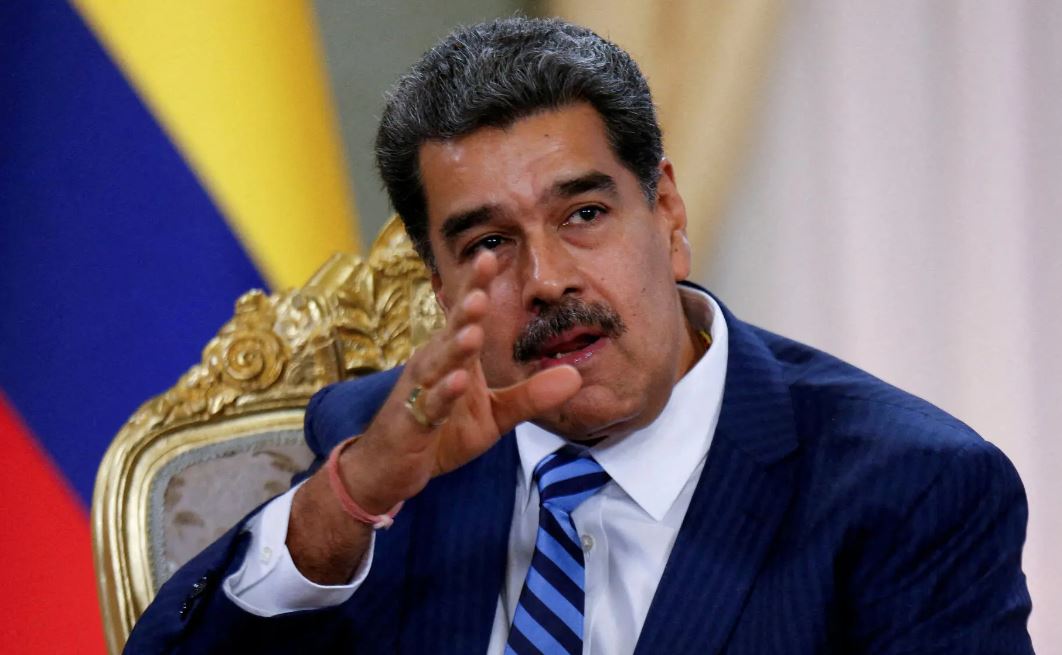In a seemingly promising development for democracy advocates, an opposition candidate’s election to challenge Venezuela’s president raised hopes for a return to democratic governance following years of authoritarian rule. The government had committed to conducting free and fair elections next year, fostering cautious optimism among Venezuelans and international observers about the potential path toward democracy.
However, President Nicolás Maduro’s government is now targeting the opposition election held this month, fueling concerns that he will resist any genuine challenge to his decade-long grip on power. This comes as Venezuela continues to grapple with international sanctions that have exacerbated the nation’s woes.
The opposition primary in Venezuela, a country with approximately 28 million people, was organized without any official government support. Civil society took the lead, setting up polling stations in homes, parks, and opposition party offices. An impressive turnout of more than 2.4 million Venezuelans suggested their strong engagement in the upcoming general election scheduled for 2024.
In the aftermath of the primary, the president of the Maduro-controlled legislature accused the organizers of inflating voter turnout and branded them as “thieves” and “scammers.” He dismissed the election as a “farce.”
Tamara Taraciuk Broner, a researcher on Venezuela for the Inter-American Dialogue, noted, “The primaries sent a clear message that the Venezuelan people are profoundly democratic at heart. If given the opportunity to vote, they will express themselves through their votes, posing a significant challenge to those in power.”
Venezuela’s attorney general’s office initiated an investigation into 17 members of the national and regional commissions responsible for overseeing the primary. The investigations are based on allegations of electoral misconduct, identity theft, money laundering, and criminal association. Should the attorney general file criminal charges, the defendants may face trials and potential imprisonment.
On Monday, the country’s supreme court issued a ruling effectively annulling the primary. However, given that the government played no role in the election, the practical implications of this decision remain uncertain.
Juan Manuel Rafalli, a constitutional lawyer in Venezuela, suggested that the attorney general’s office would likely request documents from the primary’s organizers to potentially invalidate the results or call for a new election. He emphasized that the government’s efforts to nullify the primary had little legal basis.
Venezuela has been grappling with economic turmoil and a humanitarian crisis during President Maduro’s tenure, which began in 2013. The nation, once one of Latin America’s wealthiest, experienced an economic free fall, leading to mass emigration, with around a quarter of the population—approximately seven million Venezuelans—leaving the country.
Despite a recent agreement between the Maduro government and the opposition aimed at fostering free and fair elections, President Maduro has barred key opposition candidates from running, a tactic he frequently employs to sideline strong competitors.
The Biden administration has partially lifted sanctions on Venezuela’s crucial oil industry in response to some recent gestures by President Maduro, such as accepting deported Venezuelans from the United States and releasing a few political prisoners. Nevertheless, the administration expects Venezuela to reinstate disqualified candidates or face the reinstatement of sanctions.
The U.S. State Department acknowledged the Venezuelan high court’s decision regarding the opposition primary and called on the Maduro government to uphold its commitment to conducting a credible election next year. The international community is closely monitoring the implementation of the electoral road map, with the U.S. government prepared to take action should Maduro and his representatives fail to meet their commitments.
Two members of the national commission responsible for organizing the opposition election, who are not under investigation, criticized the Maduro government’s move and questioned its legitimacy. They noted that the government was caught off guard by the high level of participation, emphasizing the administration’s slim chances of winning the elections.
Political analyst Pedro Benítez observed that the Maduro government was employing a familiar strategy to suppress threats to its power. He explained that the government aims to discourage, divide, and demoralize the opposition to solidify its grip on power.

